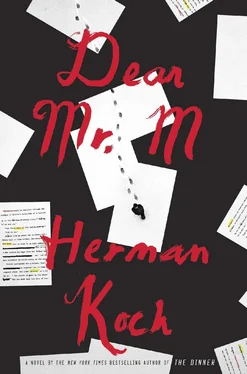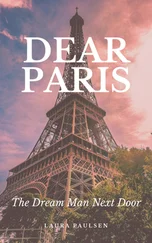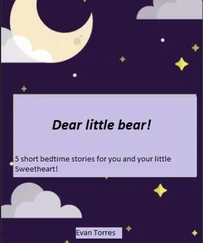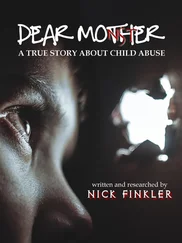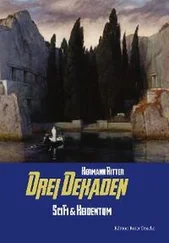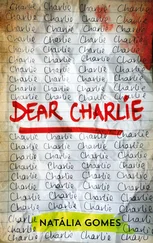And so, empty-handed, we started in on the trip back to our warm bed in front of the stove. Just outside Retranchement the road makes a slight bend, halfway through which one catches sight of the first houses of Terhofstede, including the white one that belonged to Laura’s parents.
She was the first to see the car parked outside the garden gate. Someone was leaning against the fender, only a vague form at this distance, but still, unmistakably, a person. It was Laura too who immediately recognized the cream-colored Volkswagen Beetle as belonging to our history teacher.
“Oh, no!” she said. She grabbed my arm and tried to pull me back down the road. At this point in the bend there were no houses or trees to hide behind. Our only hope was to backtrack as quickly as we could.
At that moment, though, the figure hoisted itself off the fender and walked up onto the road. He waved.
“Oh, no!” Laura said again. “This is just too horrible!”
I pulled her up close, threw my arms around her. I didn’t ask how Mr. Landzaat knew where we were. His behavior in the last few weeks had become increasingly desperate. First he had accosted Laura in the bicycle shed at school, panting and pleading for a chance to talk. Later there were the phone calls when all Laura could hear was the sound of his breathing.
One night she had woken up with a strange feeling, and when she slid aside the curtain of her bedroom window she saw him there. He was standing under a lamppost, looking up at her. She couldn’t see his features clearly, but she could feel his look of reproach.
For obvious enough reasons, at school she hadn’t dared to complain about our history teacher’s behavior. That would have resulted, at the very least, in the two of them being kicked out of the Spinoza Lyceum. And telling her parents about it was completely out of the question. They were modern, to a certain extent (or at least that’s what they called themselves), and you might even say they were understanding. But between being understanding and actually understanding something yawns an unbridgeable chasm — a chasm so deep that you often can’t see the bottom at all.
And so I had taken Laura in my arms and held her tight. She started sobbing quietly.
“Take it easy, love,” I said. “Take it easy. Everything’s going to turn out fine. I’ll make sure it all turns out fine.”
Then I let go of her and stepped out into the middle of the road. I raised my hand and waved to Mr. Landzaat. I waved as though I was happy to see him.
This is the point at which I leave you up in the air about how things went from there, a technique you apply regularly yourself — a digression at a moment of suspense, a story within the story.
In Liberation Year, that story within the story begins when the four children start on their long journey on foot to the part of Holland already freed by the Allies. The trip takes ages and is rarely suspenseful. We, the readers, would rather get back as quickly as possible to the interrogation of the Wehrmacht defector. But for pages on end you make us hop over frozen ditches along with those children. That they dye their hair along the way is, in fact, extremely implausible in that last year of the war, when even the direst necessities were rationed. Implausible and boring. The children are such pains-in-the-ass, the reader doesn’t really give a damn whether they survive the trip or not. You end up hoping they’ll be arrested and spirited away, and the sooner the better. Off! Off with them! Off with this book!
Another reason why I pause here is because I’m curious to hear whether my tale of teacher mortality sounds at all familiar to you. Especially the part about the two high-school students and the teacher who just won’t go away. What I’m wondering is whether you have any idea how it goes after that, but to be honest I have no doubts about that anymore.
At the risk of getting ahead of myself: Isn’t it an ironic twist of fate that your most commercially successful book should be entitled Payback ? I’ve always liked that title. You were never particularly in form after that when it came to titles — nor when it came to writing books either, come to think of it — but that’s another story. The story within the story of your life, you might say, of your dwindling writer’s career.
And then, isn’t it a much more ironic twist of fate that Payback should be your only book based on real events (not counting The Hour of the Dog, which was about your first wife — a different genre, if you ask me)?
Suddenly I can’t help thinking about my visit to the bookshop a few days ago. Not the day that you were there signing, but the day before that. The moment when the customer finally put Liberation Year back on the pile beside the register.
After the initial relief, I also felt a certain disappointment. Because, as a matter of fact, I still wish you the best possible sales figures. What could be better than for as many readers as possible to see for themselves that, after a dozen books, two plays, and almost half a lifetime, the writer of Payback no longer cuts the mustard?
That afternoon, by the way, I also noticed that there weren’t a lot of your books on the shelf. Payback is pretty much obligatory, of course, but your other work was thinly sown. I asked the salesperson about The Hour of the Dog (talk about glaring titles), but he informed me that that particular title was “no longer in print.”
No longer in print… There are words, sentences, and phrases that, in all their simplicity, say much more than they seem to at first: two months to live, never heard of it, dead on arrival… For a writer, no longer in print must fall somewhere in that same category.
I saw that Payback is now entering its twenty-seventh print run. I sort of like the new cover, vaguely American with all that red and blue. And that new picture on the back cover — at least you’re not one of those writers who hopes to cheat time’s advance with a single vague and grainy photo.
You try to keep up with the times, even on the backs of your books. That too, though, is a form of mortality. Every five years the cover is rejuvenated, while the writer and his work go on aging for all to see.
I took care to stop and read once again the text on the back cover. There was no significant difference from the text on the back of the first edition I have here at home. I own several editions — three, to be precise. When it comes to covers, I think the movie edition is the ugliest. Those red, dripping letters! What could the publisher have been thinking? A bloodbath? It’s a pity, because a title like Payback already speaks so clearly for itself. Why would you want to add anything to that?
And then, beneath those dripping letters, in a sort of Gone with the Wind setting, the photos of the three stars. That’s the second crucial mistake. An intentional mistake to boot, made only to pump up sales. And indeed, after the movie came out, Payback began its second life, as they say, and made the bestseller list for the second time in five years.
Movie or no, you should never put pictures of the book’s characters on the cover. That only cramps the reader’s fantasy. You force him to keep seeing the faces of the actors in the movie. For someone who has seen the movie first and then, out of curiosity, goes on to read the whole book, that might not be so bad. But anyone who reads the book first is faced with a dilemma. During the reading he sees the faces of all the characters in his mind’s eye. Faces he wants to assemble with his own fantasy. No matter how those faces may be described. Despite your superfluous descriptions of noses, eyes, ears, and hair color, each reader constructs his own faces in his own imagination.
Читать дальше
